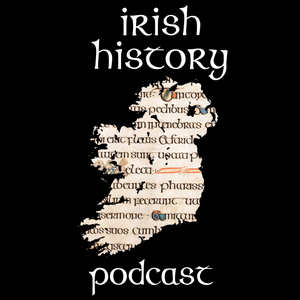Each February Ireland celebrates St Brigid, one of the most beloved figures in Irish history. She is woven into the landscape, the calendar and the culture, yet a simple question hangs over her story. Did she ever really exist?
You may recall a very short episode on this topic last year. Since then, I have rethought the evidence, changed my view and this episode takes a much deeper look at the history.
For centuries St Brigid has been remembered as a saint who stood alongside St Patrick at the dawn of Irish Christianity. In recent decades, however, a growing argument has claimed she was never a historical figure at all, but a pagan goddess transformed into a Christian saint.
This episode is a journey through the turbulent fifth century to examine the evidence. Drawing on early medieval sources, folklore, ritual, and modern research to explore St Brigid the woman, Brigid the goddess, and try and determine where the truth lies.
Support the show at www.patreon.com/irishpodcast
Sources and Further Reading:
Dictionary of Irish Biography Brigit: https://www.dib.ie/biography/brigit-brighid-brid-bride-bridget-a0961
Johnson, Elva Making St Brigit real in the early middle ageshttps://muse.jhu.edu/verify?url=%2Fpub%2F423%2Farticle%2F941740&r=972076
Lawrence, Lisa Pagan Imagery in the Early Lives of Brigit: A Transformation from Goddess to Saint? Proceedings of the Harvard Celtic Colloquium, Vol. 16/17 (1996/1997), pp. 39-54
Zacharias Anna Brigid, Ireland’s Anti establishment Saint https://newlinesmag.com/essays/brigid-irelands-antiestablishment-saint/
Hosted on Acast. See acast.com/privacy for more information.


